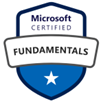Overview
With the advancement of AI, cyber threats are becoming increasingly sophisticated and harmful. This escalating threat has created a growing demand for skilled professionals to combat these dangers.
That’s where you come in.
At FIU, our Master of Science in Computer Engineering: Network Security equips you with the skills needed to meet this rising demand. In just 10 months, you can earn your degree online, mastering ethical hacking, forensics, network security, malware analysis, and AI-driven prevention.
This program prepares students to protect systems, data assets, and sensitive information. The curriculum focuses on the latest developments in AI, policy operations, technologies, and defense techniques. Students will work with secure systems and applications, understand the legal impacts of cybersecurity, and learn how to lead, manage, and build cybersecurity solutions.
To meet the growing need for leaders capable of protecting data and information in both public and private sectors, this program equips students with advanced skills and versatile knowledge to tackle large, complex, and multidisciplinary cybersecurity challenges.
Secure your future by becoming a leader in AI-driven security solutions. Apply Now to join the cybersecurity frontlines or call 1-855-449-3001 to get started.
-
Why Apply?
As cyber-attacks grow more sophisticated with AI, experts in network security are now essential defenders in the digital age. Specialists with advanced training in AI and cybersecurity are poised to become the industry's elite.
Graduates of this fully online program can step into pivotal roles such as security administrator, information security manager, network security engineer, and data security analyst. Armed with AI expertise, they'll predict and neutralize cyber threats, making them invaluable assets in technology companies, defense, government, e-commerce, and finance.
And Florida International University stands out: Our program is recognized by the NSA and DHS as a National Center of Academic Excellence in Cyber Defense Education.

-
Careers
Career Path
Information Security Manager, Network Security Administrator, Network Security Engineer, Data Security Analyst, Systems Application Security Analyst, Lead Software Security Engineer, Chief Information Security Officer, Global Information Security Director, IT Security Consultant, Ethical Hacker
Non-traditional Career Paths- Artificial Intelligence Specialist, 3D Animator, Game Designer, Website Developer
Income Range
- $53,000 - $135,000+
- Industry Outlook
- FL: 15% ⬆️
- US: 13%⬆️
-
Courses
Our curriculum is designed to keep you up to speed with new tech as it happens and covers every possible aspect of cybersecurity and AI. At the same time, you’ll learn advanced network security principles, cryptographic techniques, and secure systems design. Hands-on projects and real-world scenarios ensure you're job-ready from day one.
The MS program consists of six eight-week terms. Students enroll in 4 courses (12 credits) each semester, which is the equivalence of two courses each term. A total of 30 credit hours, including two components: the Computer Engineering Core (24 semester hours) and Math Electives (6 semester hours). Up to 6 semester hours of graduate credit may be transferred into the master’s program.
Core Courses
Fall Semester Term - Dynamic A
- Advanced IoT Communications and Networking
- Advanced Malware Reverse Engineering
Term - Dynamic B
- Random Signal Principles
- Social, Economic, and Policy Aspects of Cybersecurity
Spring Semester Term - Dynamic A
- Computer Communication Networks
- Advanced Ethical Hacking and Countermeasures
Term - Dynamic B
- Network Security
- Practical Applied Security
Summer Semester Term - Dynamic A
- Advanced Digital Forensics
- Advanced Systems Theory
Professional Certifications
As part of your coursework, you'll earn these Microsoft certifications:
- AI-900: Azure AI Fundamentals
- AZ-900: Azure Fundamentals
- DP-900: Azure Data Fundamentals

-
Requirements
Admissions Requirements
Applicants for admission into the Master of Science in Computer Engineering online program must meet the minimum University Graduate School admission criteria:
-
Applicants must have a bachelor’s degree in electrical engineering, computer engineering, or a bachelor’s degree in a related STEM field from an accredited institution.
-
International applicants must have studied at a US comparable institution or must have obtained the equivalency to a US degree or a bachelor’s degree in a related and a minimum of one year work experience in the broad areas of computer engineering and/or technology.
-
Undergraduate GPA of 3.0 in the last 60 semester hours in upper-level undergraduate work.
- The College of Engineering and Computing requires all applicants to have completed MAC 1147-PreCalculus Algebra and Trigonometry AND MAC 1105 College Algebra or equivalent with a "C" or higher to be considered for this program.
International Students
-
Proof of English Language Proficiency. If you earned a bachelor's degree in a country whose official language is not English, you must demonstrate English language proficiency by earning a passing score on the Test of English as a Foreign Language (TOEFL) or the International English Language Testing System (IELTS). TOEFL required minimum score: 550 (paper-based exam) or 80 (internet-based). IELTS required minimum score: 6.5. When requesting official scores, please refer to FIU Institution code 5206. TOEFL / IELTS scores are valid for two years. View list of TOEFL/IELTS-exempt countries.
-
Graduate programs can use the Duolingo English Test.
-
Please visit Duolingo English Test for more information about how to register for the exam.
-
-
Official Transcripts Translation. If official transcripts are not in English, a second copy of the transcript must be requested for translation. Both the official translation, as well as the original transcripts, must be submitted to FIU.
-
Certified Copy of Diploma. If you obtained your degree at a foreign institution.
- As a fully online degree, this program is ineligible to grant/provide F-1 Student visas.
Admissions Documents
The following must be submitted:
-
Online master's programs application. Be sure to select Master of Science in Computer Engineering: Network Security.
-
A resume including education, training, and employment history, practical and research experience (such as projects and publications), skills and other pertinent information.
-
A statement of objective in which the applicant must clearly state his/her intended engineering track, in addition to other information.
-
Three letters of recommendation must be sent. Letters are to be from those who have knowledge of the applicant's prior professional experience (e.g. a supervisor) or of the applicant's ability to perform graduate work (e.g., a professor) and should attest to the applicant's intellectual ability, motivation, maturity, and potential.
Meeting the minimum admission requirements does not guarantee admission into the program. Official transcripts/translations must be submitted directly by the respective institution(s) in electronic format or mailed in a sealed institution envelope to:
FIU Online
Florida International University
11200 SW 8th Street, MANGO 540
Miami, FL 33199Graduation Requirements
Students must have a minimum cumulative graduate GPA of 3.0 or greater. No grade below “C” will be accepted in a graduate program. In order to graduate in a given term, a student must submit an application for graduation to the Office of the Registrar by the appointed deadline. A graduate student must be enrolled the term in which he/she graduates. A student denied graduation must complete the requirements for graduation and reapply for graduation.
-
-
Tuition
Pursuing your degree is one of the best investments you can make — one that will open doors to personal and professional opportunities. Our tuition costs represent some of the best value in higher education, and we also offer financial aid support to reach your goals.
The cost of tuition for the academic year is $25,000. Students pay for courses at the beginning of each semester. All fees are subject to change.
Scholarship opportunities available
Academic Works
FIU offers Academic Works, a website that matches students with relevant scholarship opportunities. Find the one that’s right for you! Academic Works is an online scholarship application tool where FIU students can browse and apply for more than 100 scholarships, made possible by the generosity of FIU alumni and friends. Students can apply after they are matriculated into one of our programs. For more information visit https://give.fiu.edu/business-governance/scholarships/.
Other Resources
There are other third party resources that prospective students can access while researching on how to pay for school. Below are various links that provide more information on financial aid and scholarship opportunities:
Federal Financial Aid
For information on Federal Financial Aid and the Free Application for Federal Student Aid (FAFSA), please visit our financial aid page.
Under the revised Florida Board of Governors' (BOG) Regulation 8.002, all institutions of the State University System (SUS) of Florida are required to provide students with a side-by-side Tuition and Fees comparison for continuing education programs. The tuition comparisons are made between a traditional program vs. its counterpart Market Rate/Self-Supporting program. This approach provides students an opportunity to become aware of options that are available upon selecting a degree program of study.
Please click on the following link which will take you to a searchable database that provides the side-by-side tuition and fees comparisons for the Master of Science in Computer Engineering: Network Security Track: https://continue.fiu.edu/programs/side-by-side-tuition-comparison/embed.html
-
Top Faculty
Dr. Stavros Georgakopoulos
Assistant Professor Dr. Georgakopoulos joined FIU in 2007. His current research interests relate to wireless powering of portable, wearable, and implantable electromagnetic devices, applied and computational electromagnetics, RFID systems, antenna arrays, as well as novel reconfigurable, tunable, broadband, and miniaturized antennas. Prior to joining FIU, Dr. Georgakopoulos held a principal engineer position at the Research and Development Department of SV Microwave, which is part of Amphenol Corporation, one of the world's largest manufacturers of telecommunications products.Dr. Gustavo Chaparro-Baquero
Dr. Chaparro-Baquero joined FIU as faculty member in 2018. He counts with over 20 years of experience teaching courses related to electrical and computer engineering for different engineering schools. He also has multiple publications related to real-time systems, embedded systems, computer architecture, and computer security topics. Dr. Chaparro-Baquero holds a Ph.D in Electrical and Computer Engineering from Florida International University. Additionally, he is member of the Institute of Electrical and Electronics Engineers (IEEE) Computer Society and the American Association for the Advancement of Science (AAAS).Dr. Alexander Perez-Pons
Dr. Perez-Pons joined FIU in 2013. He has published numerous journal articles on real-time system, security, biometrics, and semantic link associations. As a consultant, he has worked in the private, public, and government sectors and advised in areas such as Business Intelligence, Mobile Technologies and Network Security. Dr. Perez-Pons holds a Ph.D in Electrical and Computer Engineering from the University of Miami and is a senior member of the Institute of Electrical and Electronics Engineers (IEEE).Dr. A. Selcuk Uluagac
Dr. Uluagac comes to FIU from Georgia Tech where he currently serves as the Senior Research Engineer in both the Communications Assurance and Performance Group as well as the Communications Systems Center in the school of Electrical and Computer Engineering. He plans to further his work by building, designing, and analyzing novel computing systems and collaborating on interdisciplinary projects with colleagues and faculty. As a graduate teaching assistant at Georgia Tech, he received the 2007 Outstanding ECE Graduate Teaching Assistant Award. He has also independently developed and taught courses in areas of network security, telecommunications, and wireless networks.Dr. Kemal Akkaya
Dr. Akkaya brings 15 years of teaching experience to FIU, both at the graduate and undergraduate levels. While at Southern Illinois University he taught a variety of security related courses. Since his hire in 2005 at SIU, Dr. Akkaya has developed a significant research program in the area of wireless networks and security which includes founding the Advanced Wireless and Sensor Networking (ADWISE) Research Lab. Recently funded by the National Science Foundation for 300K over the next three years, Dr. Akkaya will be bringing with him a project titled “Privacy-preserving Data Collection and Access for IEEE 802.11a-based Smart Grid Applications.” -
View Our Information Session
Learn more about the details of our program by listening in to our information session.
30 Credits Required
$25,000.00 Tuition Cost
* Total tuition and fees are subject to change.
Highlights
10-month fully online program
Computer engineers with advanced training in high demand
This program grants you access to Career Engage and associated scholarships
Top 10 percent of information security analysts earn more than $135,600
Top 25 Best Value Online Engineering Master’s, ValueColleges.com, 2020
#6 Best Computer Engineering Colleges in Florida, Universities.com, 2020
#8 Best Colleges for Computer Engineering in Florida, CollegeFactual.com, 2020
# 14 in the nation for Best Online Master's in Computer Engineering Programs, BestColleges.com, 2019
#10 in the nation for Best Value Online Master's in Computer Engineering, BestValueSchools.com, 2019
#5 in the nation for Best Online Master’s in Computer Engineering Degrees, CollegeChoice.net, 2018



